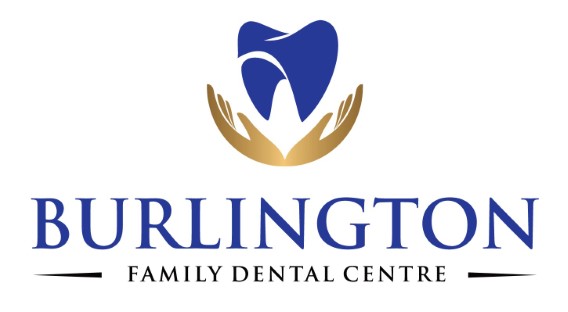Seniors and elderly face many challenges due to changes in their mouths with aging. According to the National Institutes of Health (NIH) report on a study of aging Canadians, approximately 2 out of 3 report having 1 or more dental problems with just over 1 in 3 reporting 2 or more problems.[10]
Dry Mouth
According to the NIH, xerostomia (dry mouth) in older adults is common due to medication side-effects, dehydration, autoimmune diseases such as rheumatoid arthritis, diabetes, nerve damage, or radiation/chemotherapy side-effects.[11]
There are over 1800 medications that have dry mouth as a side effect!
Chronic dry mouth can be a sign of an underlying condition and should be reported to your dentist or GP. Having xerostomia may cause difficulty speaking or chewing and swallowing, mouth sores, cracked lips, thrush, and/or increased tooth and gum issues.[12]
Treatment can address saliva secretion or increasing moisture in the mouth (through sugar-free gum or candies). Consider using a humidifier at night.[13]
Receding Gums
When gums recede, softer root tissue is often exposed. This can lead to an increase in bacteria causing inflammation. This in turn, especially when accompanied by xerostomia, results in more root caries.
Where the gums have receded, gaps are left between the teeth and gums. Bacteria grow in this space. Remove bacteria by brushing twice daily with a soft/medium toothbrush and flossing daily. Get teeth cleaned regularly (every six months) with affordable dentistry for seniors.
Missing Teeth
Most are aware of the psychological affects of missing teeth, including loss of self-esteem, self-consciousness, isolation, etc. Missing teeth can also cause additional tooth loss and temporomandibular diseases (TMDs).[14]
Tooth restoration should be explored to prevent these complications. Implants may be best due to less cost over the long-run.[15]
Ill Fitting Dentures
Almost 1 in 5 older Canadians report problems with their dentures including sores, discomfort, and issues with how they fit.[16]This can lead to problems chewing and loss of appetite as well as social self-consciousness.
One alternative is dental implants, which are stronger for improved ease while eating and for improvements in speech. While these may have a higher up-front cost, the cost over time is lower. Fewer dental visits contribute to lowering this cost.
Wear and Tear
Since seniors are keeping their natural teeth longer, evidence of wear and tear on your teeth and mouth is more likely. Your teeth may lose their sharp edges and the outer protective layer of enamel. Carbonated beverages don’t help as they and other acidic foods eat away at the enamel as well.[17]
As you age, teeth may become less sensitive to pain, so you may be less likely to notice when a tooth first develops problems. The advanced state of infection before it is noticed means the damage may be more severe and require more invasive procedures like root canals.[18]
Caries (cavities) become an even greater threat as one age especially along the gum line or the edges of fillings. Regular brushing, flossing, cleaning, and fluoride treatments help prevent this.[19]
Gum Disease
Periodontal, or gum disease, is caused by hardened plaque around the gum line. Plaque is a sticky film that harbors bacteria. It can cause the milder gingivitis or the more serious periodontitis.
In periodontitis, the body’s immune system fights the infection. It also attacks the bone and connective tissue holding the teeth. Left untreated, this can result in loss of teeth.
If left sufficiently long, gum disease can lead to infection and loss of teath and may be a dental emergency.
Oral Cancer
With age comes a greater risk of oral cancer, particularly after age 45.[20] Major factors include use of tobacco and/or alcohol and failure to clear infection due to HPV (human papillomavirus).[21]
According to an NIH publication, any of the following persisting for more than two weeks should be brought to a health care professionals attention:
- A sore, irritation, lump or thick patch in the mouth, lip, or throat
- A white or red patch in the mouth
- A sore throat or a feeling that something is caught in the throat
- Hoarseness
- Difficulty chewing, swallowing, or speaking
- Difficulty moving the jaw or tongue
- Numbness in the tongue or other areas of the mouth
- Swelling of the jaw; in denture wearers, this could feel like dentures have become uncomfortable or don’t fit right
- Ear pain[22]
Where to from Here?
Remember, prevention is both easier and more cost effective. Brush your teeth and gum line with a soft/medium toothbrush at least twice a day, floss daily, and watch what you eat especially avoiding acidic foods like carbonated beverages.
At Burlington Family Dental Centre, we pay special attention to dental care for seniors Burlington. Contact us today at (289) 797-2930 and we can help you personally or if you are a caregiver, help you with dental treatment for your loved one.
2025 William O’Connell Blvd, Burlington, ON L7M 4E4
References:
Feature image taken from freepic
[10] De Rubeis, V., Jiang, Y., de Groh, M., Dufour, L., Bronsard, A., Morrison, H., Butt, F., & Walker Bassim, C. (2023). Oral Health Problems among Canadians Aged 45 to 85: Data from the Canadian Longitudinal Study on Aging Baseline Survey (2011–2015). International Journal of Environmental Research and Public Health, 20(8), 5533.
[11] National Institute of Health. Dry Mouth in Older Adults.
[12,13] Mayo Clinic – Dry Mouth Symptoms and Causes
[14] Alshehri, M. D., Alqahtani, W. M., Asiri, E. M., & Asiri, M. N. (2021). Awareness to consequences of teeth missing and prosthodontics treatment options among people of Aseer region, Saudi Arabia. Journal of Family Medicine and Primary Care, 10(1), 307–311.
[15] Alshehri, M. D., Alqahtani, W. M., Asiri, E. M., & Asiri, M. N. (2021). Awareness to consequences of teeth missing and prosthodontics treatment options among people of Aseer region, Saudi Arabia. Journal of Family Medicine and Primary Care, 10(1), 307–311.
[16] De Rubeis, V., Jiang, Y., de Groh, M., Dufour, L., Bronsard, A., Morrison, H., Butt, F., & Walker Bassim, C. (2023). Oral Health Problems among Canadians Aged 45 to 85: Data from the Canadian Longitudinal Study on Aging Baseline Survey (2011–2015). International Journal of Environmental Research and Public Health, 20(8), 5533.
[17-19] Harvard University – The Aging Mouth and How to Keep it Younger.
[20] Ontario Dental Association (ODA) – Oral Cancer.
[21-22] National Institute of Health – National Institute of Dental and Craniofacial Research National Oral Health Information Center – Older Adults and Oral Health.

